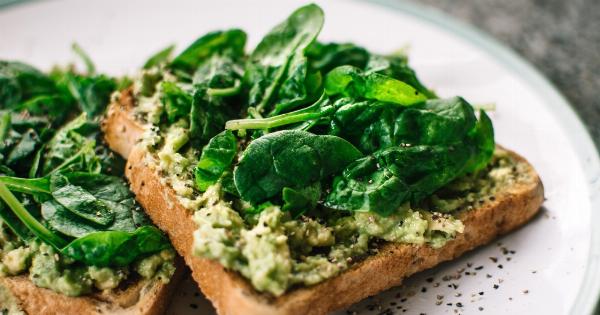Introduction
Do you want to boost your brain power? Look no further than the humble spinach leaf. Packed with essential nutrients, spinach has long been hailed as a superfood for its numerous health benefits.
In recent years, researchers have discovered that adding spinach to your diet can also have a positive impact on brain functioning. In this article, we will explore the science behind spinach’s brain-boosting properties and delve into some delicious ways to incorporate this leafy green into your meals.
The Science Behind Spinach’s Brain-Boosting Abilities
Spinach is rich in several key nutrients that play a crucial role in brain health. Let’s take a closer look at these nutrients and understand how they contribute to improving brain functioning:.
1. Antioxidants
Spinach contains high levels of antioxidants, such as vitamin C, vitamin E, and beta-carotene. These antioxidants help to neutralize harmful free radicals, which can cause oxidative stress and damage brain cells.
By reducing oxidative stress, spinach protects brain tissues and supports optimal brain health.
2. Vitamin K
Vitamin K is another essential nutrient found in spinach that has been linked to improved brain function. Research suggests that vitamin K helps to improve cognitive function and prevent age-related cognitive decline.
Regular consumption of spinach can ensure an adequate intake of this vital vitamin, promoting sharper thinking and a healthier brain.
3. Folate
Spinach is an excellent source of folate, a B-vitamin that plays a crucial role in brain development and function. Folate contributes to the production of neurotransmitters, which are essential for cell communication in the brain.
By ensuring sufficient folate intake, spinach supports optimal brain function, memory, and mood regulation.
4. Iron
Iron deficiency can lead to cognitive impairment and poor brain function. Spinach is a fantastic plant-based source of iron, which is essential for maintaining healthy brain tissue.
Eating spinach regularly can help prevent iron deficiency anemia and promote optimal brain functioning.
5. Magnesium
Magnesium is a vital mineral that plays a role in over 600 biochemical reactions in the body, including brain function. Spinach is a good source of magnesium and can help regulate neurotransmitter balance and promote a calmer, more focused mind.
Magnesium deficiency has been linked to anxiety and depression, making spinach an excellent addition to a brain-healthy diet.
How to Incorporate Spinach into Your Diet
Now that we understand the brain-boosting properties of spinach, let’s explore some creative and delicious ways to incorporate this nutrient-packed leafy green into your meals:.
1. Spinach Smoothies
Add a handful of fresh spinach to your favorite fruit smoothie for a nutritious and brain-enhancing boost. The mild taste of spinach easily blends with other ingredients, making it an ideal addition to your morning routine.
2. Spinach Salads
Toss fresh spinach leaves with your favorite salad ingredients for a refreshing and brain-healthy meal. Add some protein, such as grilled chicken or chickpeas, for a well-rounded and satisfying dish.
3. Spinach Omelettes
Start your day right by adding some sautéed spinach to your morning omelette. The combination of eggs and spinach offers a fantastic brain-boosting breakfast packed with essential nutrients.
4. Spinach Wraps
Swap out your regular tortilla for a vibrant green spinach wrap. Fill it with your favorite vegetables, lean protein, and a delicious sauce for a nutritious and brain-powering lunch option.
5. Spinach Stir-Fry
Give your stir-fry an extra nutritional punch by adding a generous handful of spinach. Not only does it add vibrant color to the dish, but it also provides a host of brain-boosting benefits.
Conclusion
Spinach’s brain-boosting abilities make it an excellent addition to any diet. Packed with antioxidants, vitamins, and minerals, this leafy green can improve brain functioning, enhance cognitive abilities, and support optimal brain health.
By incorporating spinach into your meals, you can harness the power of this superfood and enjoy its many benefits for both your brain and overall well-being.






























